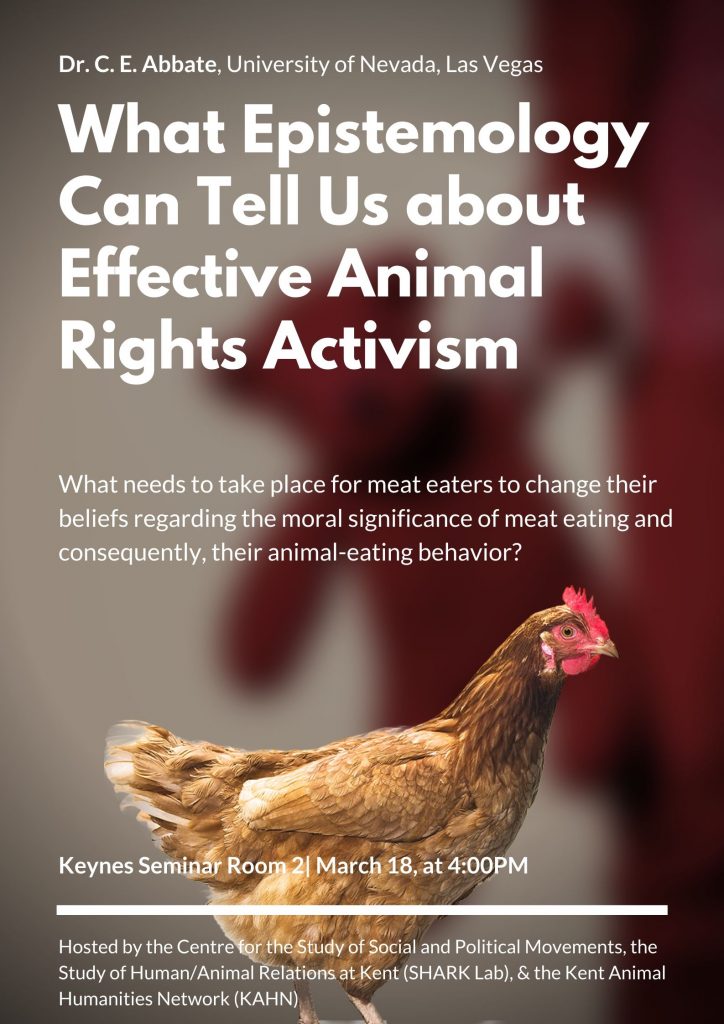Abstract
A widely accepted view in epistemology is that we don’t have direct control over our beliefs. And we surely don’t have as much control over our beliefs as we have over simple actions. For instance, you can, if offered $1,000, immediately throw your hamburger in the trash, but a meat eater can’t, at will, start believing that eating animals is seriously wrong to secure a $1,000 reward. Yet, even though we have more control over our behaviour than we have over our beliefs, some of our behaviour, especially moral behaviour, is heavily influenced by our beliefs. Meat eating is one example. So, if we don’t have direct control over our beliefs and our beliefs influence our moral behaviour, it’s no wonder meat eaters aren’t immediately boycotting McDonald’s and lining up for the Impossible Burger after watching a video on factory farming. What, then, needs to take place for meat eaters to change their beliefs regarding the moral significance of meat eating and, consequently, their animal-eating behaviour?
About the author
C.E. Abbate is an assistant professor of philosophy at the University of Nevada, Las Vegas and the co-president of the Society for the Study of Animal Ethics. She specializes in ethics (especially animal ethics), social and political philosophy, and epistemology (especially the intersection of epistemology and ethics). Recent publications include: A defense of free-roaming cats from a hedonist account of feline well-being (Acta Analytica), Veganism, (almost) harm-free animal flesh, and nonmaleficence: Navigating dietary ethics in an unjust world (Routledge Handbook of Animal Ethics), and Valuing animals as they are: Whether they feel it or not (European Journal of Philosophy).
March 18
16.00-18.00
Keynes Seminar Room 2

